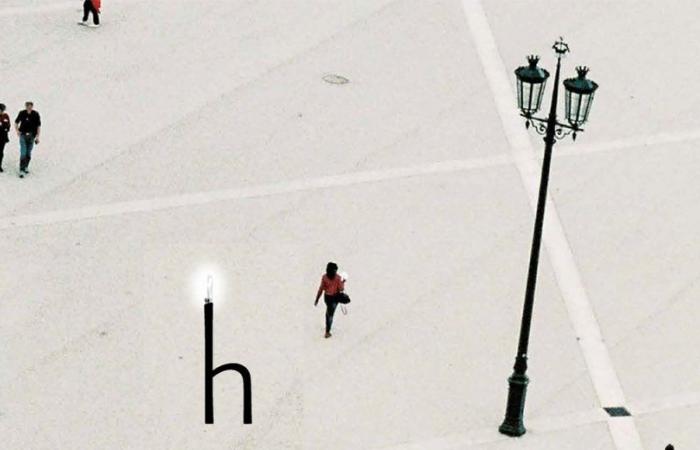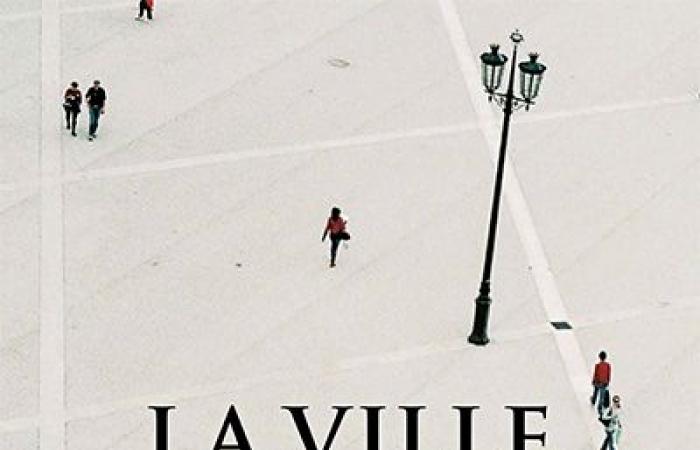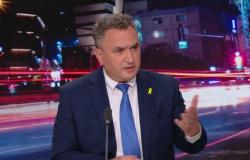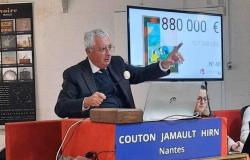From the slums of Algiers to the liberated streets of Paris via the chaos of Berlin in 1945, the establishment highlights its archives which bear witness to the issues and changes in urban spaces through the ages. Through screenings, conferences, exhibitions and workshops, ECPAD invites festival-goers to rediscover the history of cities, capturing the challenges, dramas and aspirations of populations in these constantly transforming environments.
The highlight of the establishment’s participation in these Rendez-vous de l’Histoire, the exhibition Liberating the cities – views of the French army (1943-1945)
Thursday October 10
From 2:30 p.m. to 4 p.m. – At City Hall – Municipal Council Room
SHD Conference : Sunandurban rilla, an archandology of contemporary terrorism, yearsandfrom the 1960s to theandes 2000
In the wake of the successes of Castro guerrilla warfare, theorized by Che Guevara, urban guerrilla warfare emerged in the strategic discourse of the Latin American far left at the end of the 1960s, mainly in Brazil (with the ALN) and in Uruguay. (with the Tupamaros). Soon, urban guerrilla manuals spread, via the Tricontinental networks, inspiring the European extreme left of the years of lead, then the Middle East around the Palestinian cause and the Lebanese cauldron in the case of Hezbollah. It is this evolution of political violence, in a specific (and complex) space which, from one continent to another, conditions the very forms of violence, that this round table aims to reflect, by focusing on relying on a double perspective, that of historians and photographic production (documentalist and photographer in Lebanon), particularly for certain more significant attacks (such as the Drakkar attack, in 1983), in order to question the city as a context determinant of a singular form of violence.
With :
- Guillaume Denglos, research fellow at SHD
- Gilles Ferragu, deputy head of the research, studies and teaching division of the History and Symbolism department at the SHD
- Dominique Guillemin, research fellow at SHD
- François-Xavier Roch, former photographer at ECPAD
- Constance Lemans-Louvet, deputy head of the cultural development and dissemination center at ECPAD
From 4 p.m. to 5:15 p.m. – At the Center of Resistance, Deportation and Memory
Cinema Cycle : Berlin of the ville lumiAndback to the chaos of 1945
This program offers a panorama of filmed representations of Berlin in the ECPAD funds, from the early 1930s to the Zero hour (1945). Through a rich selection of film extracts from particularly diverse origins and producers, the aim will be to study in particular the Berlin of the Third Reich and the Second World War, then the different recurring motifs in the audiovisual representations of the Zero hour : the women of the ruins, the black market, the presence of the Allies or even denazification, which is found in fiction cinema and the genre of Rubble films. Thus this projection will also raise the question of the migration of images.
With :
- Diane Barbe, doctor in cinematographic and audiovisual studies associated with the IRCAV
- Margaux Blondel, mediation officer at ECPAD
From 8 p.m. to 11 p.m. – At Les Lobis Cinema, room 1
Award ceremony for the 2024 Historical Documentary Project
Competition for documentary film projects dealing with a historical subject. The Grand Prix will notably benefit from five days of post-production at ECPAD.
With Alexandra Berdeaux, head of the cultural development and dissemination pole at ECPAD
Friday October 11
From 1 p.m. to 4:45 p.m. – At the National Higher Institute of Teaching and Education
Educational workshop : Slums of’Alger
From the slums of Algiers to the large complexes of the Constantine plan: photographing and filming the challenges of urban modernity during colonial war.
Images from the report ALG 57-279 dedicated to the inauguration of the City of Hope in May 1957 by Major General Allard, commanding the Algiers Corps, and the name chosen for this set of housing reserved for the French Muslims of Algeria (FMA), according to the colonial classification then in use, provide information on the different uses that the civil and military authorities wish to make of the promotion of urban modernity in Algeria at war. The wealth of photographic and filmic resources allows us to unfold and question the modalities of this vast urban planning project: the destruction of the shanty towns (those of Clos Salembier and Maison Carrée in particular), the discursive choices made in the way of photographing the rehoused inhabitants, the sets of buildings designed by Reconstruction architects (including politician Paul Delouvrier), site visits, the arrival of civil and military officials and the presence of SAUs (urban administrative sections) make the construction of new buildings of HLM standard an obvious issue for the State at war. The chronology in which these objectives fall also makes it possible to draw parallels in temporality with the metropolitan social housing projects.
With Floriane Germain, head of the mediation and public department at ECPAD
From 3:45 p.m. to 5 p.m. – At the Center of Resistance, Deportation and Memory
Cinema Cycle: The liberation of Paris in the funds of ECPAD
From August 19 to 28, 1944, the Liberation of Paris was filmed, all over the capital, by cameramen, amateurs or professionals, sometimes resistance fighters. Journal of the Resistance: the liberation of Pariswork of the Committee for the Liberation of French Cinema (CLCF), is a benchmark. Filmed, edited immediately and screened on August 29, 1944, this opus reveals the highlights of the insurrection, from the Battle of Paris to the victory ceremonies. Conceived as documents bearing witness to history, the images of the short film, through their editing and selection, nonetheless remain imbued with a political-symbolic discourse on the events. At the same time, ECPAD keeps other films on the subject, from private funds. Recorded by Parisians themselves, they offer a personal testimony to the Liberation. As part of the screening, ECPAD will return to the exceptional context of the production of these archives and then to the historical and political testimony that they offer us.
With :
- Sylvie Lindeperg, university professor of contemporary history at the University of Paris 1 Panthéon-Sorbonne
- Sylvie Zaidman, general curator of heritage, director of Paris Liberation Museum – General Leclerc Museum – Jean Moulin Museum
- Laura Pennanec’h, deputy head of the mediation and public department at ECPAD
From 4 p.m. to 6 p.m. – At the Michel Delpech space at the Hôtel du CD 41
Inauguration of the exhibition Liberate the cities, looks of the armandand françcomfortable (1943-1945)
This photographic exhibition highlights the iconographic and symbolic richness of the Liberation, a major event in our contemporary history. The journey through the archives kept by ECPAD offers a diversity of perspectives on the liberated French cities and questions their testimonial, heritage and aesthetic value. Field of ruins, combat zone, space of solidarity, resistance or place of celebrations, the city thus appears under multiple prisms.
With :
- Margaux Blondel, mediation officer at ECPAD, curator of the exhibition
Saturday October 12
From 9:30 a.m. to 12:30 p.m. – At the Les Lobis Cinema, room 3
Cinema Cycle : Libandration(s)
The Liberation of France is not just the landing of Normandy, the descent of General de Gaulle on the Champs-Élysées at the Tondue de Chartres. There were “some” liberations, spread over a year, marked by both joys and hopes but also doubts, suffering and drama. The film tells the story of this complex and ambivalent story.
Episodes 2 and 3 broadcast (2 x 45 min)
With :
- Valérie Manns, director
- Alexandra Berdeaux, head of the cultural development and dissemination division at ECPAD
From 2 p.m. to 3 p.m. – At the Jaurès University site in room 4
Table ronde : Rehsee Rezand around a photographic report on Le Corbusier’s Maison radieuse
Documenting all aspects of daily life within the 294-unit housing unit built in 1954 on the outskirts of Nantes, a photographic report produced by Pierre Allard reflects the social utopia proposed by Le Corbusier in the context of Reconstruction : poeticization of architecture, modern comfort, benefits of community life, efficient services… It will be a question of addressing, through these photographic archives, the issues and the context of the institutional order, the construction of the report as well as the photographic gaze focused on Rezé.
Made up of more than a hundred black and white photographs taken by Pierre Allard, this report finds its origins in a double institutional commission. That, on the one hand, of the National Pedagogical Institute (IPN), which endeavored throughout the second half of the 20th century to collect and make available to the public photographs documenting different aspects of social, family, educational, cultural and leisure activities for children and adolescents in France. Furthermore, this report is part of a second series entitled “15 days in France”, made up of 14 reports produced in numerous regions of France by various photographers for Documentation française, an institution imagined by General de Gaulle in 1942, including the missions are to offer citizens general information on political, economic and social news, both French and international.
With :
- Muriel Cohen, lecturer in contemporary history at Le Mans University
- Daniel Coutelier, deputy head of the documentary enrichment department at ECPAD
- Claire Guiu, teacher-researcher in geography at the University of Nantes
- Alexandra Berdeaux, head of the cultural development and dissemination division at ECPAD







